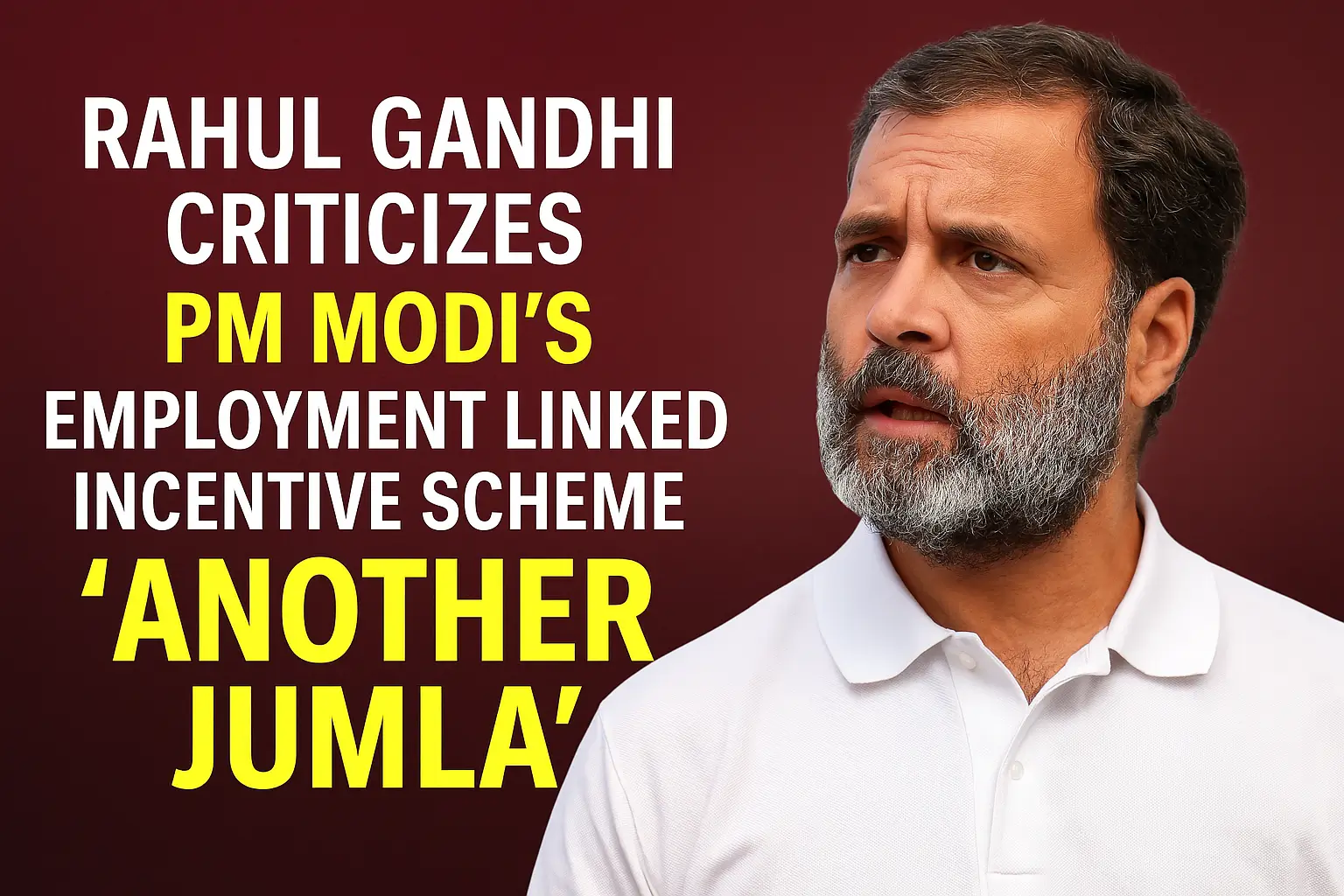In a recent critique of the Modi government’s economic policies, Congress leader Rahul Gandhi emphasized that sustainable job creation cannot be achieved by focusing solely on large corporations, promoting cronyism over fair competition, prioritizing assembly over production, and neglecting India’s indigenous skills. He argued that such an approach undermines the potential of micro, small, and medium enterprises (MSMEs) and fails to leverage the country’s traditional craftsmanship and local industries.
Rahul Gandhi highlighted the need for substantial investment in MSMEs, advocating for fair markets that encourage competition, support for local production networks, and equipping youth with relevant skills. He criticized the government’s Employment Linked Incentive (ELI) scheme, questioning the allocation and utilization of the ₹10,000 crore fund, and suggesting that the lack of transparency reflects a disregard for addressing unemployment effectively.
The Congress leader’s remarks underscore a broader call for inclusive economic policies that empower small businesses and preserve India’s rich heritage of indigenous skills. By fostering an environment where fair-play businesses can thrive and local industries are supported, Gandhi envisions a more equitable and robust framework for job creation across the nation.
Conclusion:
Rahul Gandhi’s remarks serve as a reminder that inclusive and sustainable economic growth in India requires a bottom-up approach—one that empowers MSMEs, nurtures traditional skills, and ensures fair opportunities for all businesses, not just large corporates. By calling out crony capitalism and the emphasis on superficial assembly work over deep-rooted manufacturing, he highlights the need for a policy shift that values innovation, self-reliance, and equitable development. If India is to truly become a global economic powerhouse, it must harness the full potential of its diverse workforce and entrepreneurial spirit at every level of the economy.

